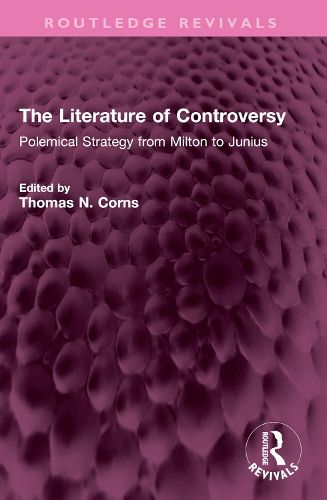Readings Newsletter
Become a Readings Member to make your shopping experience even easier.
Sign in or sign up for free!
You’re not far away from qualifying for FREE standard shipping within Australia
You’ve qualified for FREE standard shipping within Australia
The cart is loading…






First published in 1987, The Literature of Controversy is a collection of essays by scholars from Britain, the United States, and Australia on major works from a classic epoch of English controversial prose. Each essay engages a single text or series of texts, less to discuss the ideas and arguments per se than to consider the rhetorical techniques assumed for the political manipulation of the readers. Though emphasis varies from contribution to contribution, the purpose, broadly, is to explore how the constituents of those texts are organised to coax, cajole, persuade or inspire those to whom they address. As the editor argues in his introduction, this approach, the critique of polemical strategy, for the most part accepts the validity of paying regard to the author and his intentions; it engages questions about the responses of the readership at which the texts were targeted; and it proceeds intertextuality in its attempts to reconstruct the controversies in which the texts were embedded and the codes within which they operated. This book will be of interest to students of literature, rhetoric and history.
$9.00 standard shipping within Australia
FREE standard shipping within Australia for orders over $100.00
Express & International shipping calculated at checkout
First published in 1987, The Literature of Controversy is a collection of essays by scholars from Britain, the United States, and Australia on major works from a classic epoch of English controversial prose. Each essay engages a single text or series of texts, less to discuss the ideas and arguments per se than to consider the rhetorical techniques assumed for the political manipulation of the readers. Though emphasis varies from contribution to contribution, the purpose, broadly, is to explore how the constituents of those texts are organised to coax, cajole, persuade or inspire those to whom they address. As the editor argues in his introduction, this approach, the critique of polemical strategy, for the most part accepts the validity of paying regard to the author and his intentions; it engages questions about the responses of the readership at which the texts were targeted; and it proceeds intertextuality in its attempts to reconstruct the controversies in which the texts were embedded and the codes within which they operated. This book will be of interest to students of literature, rhetoric and history.